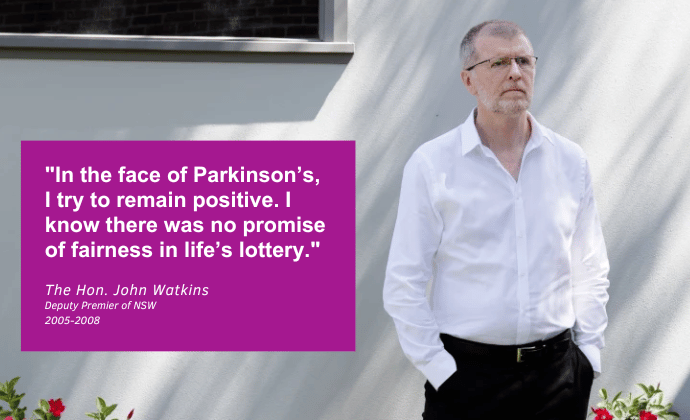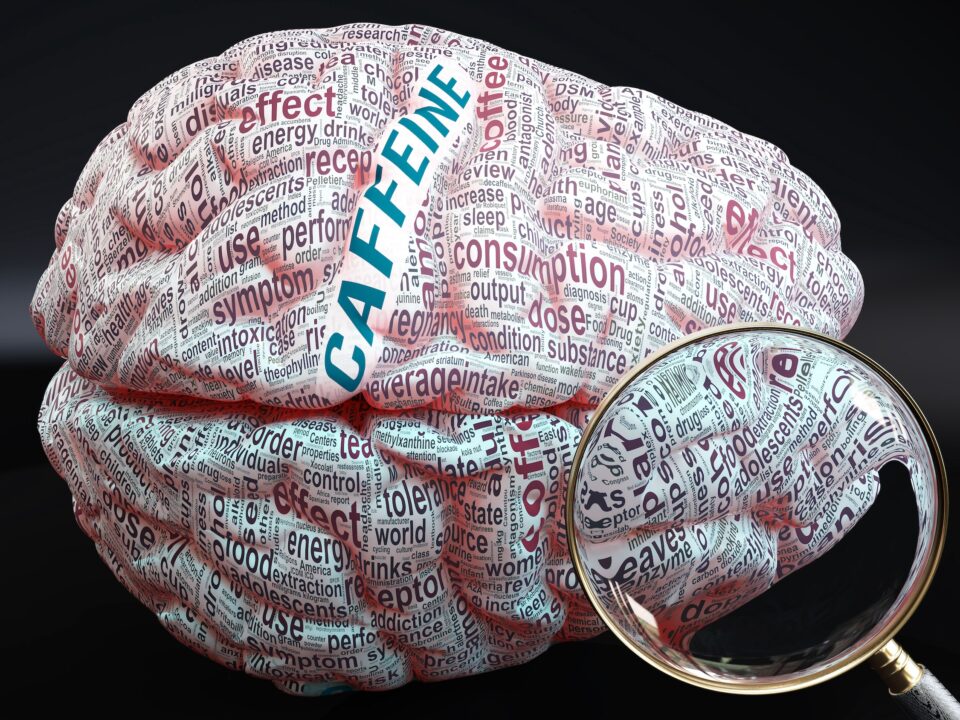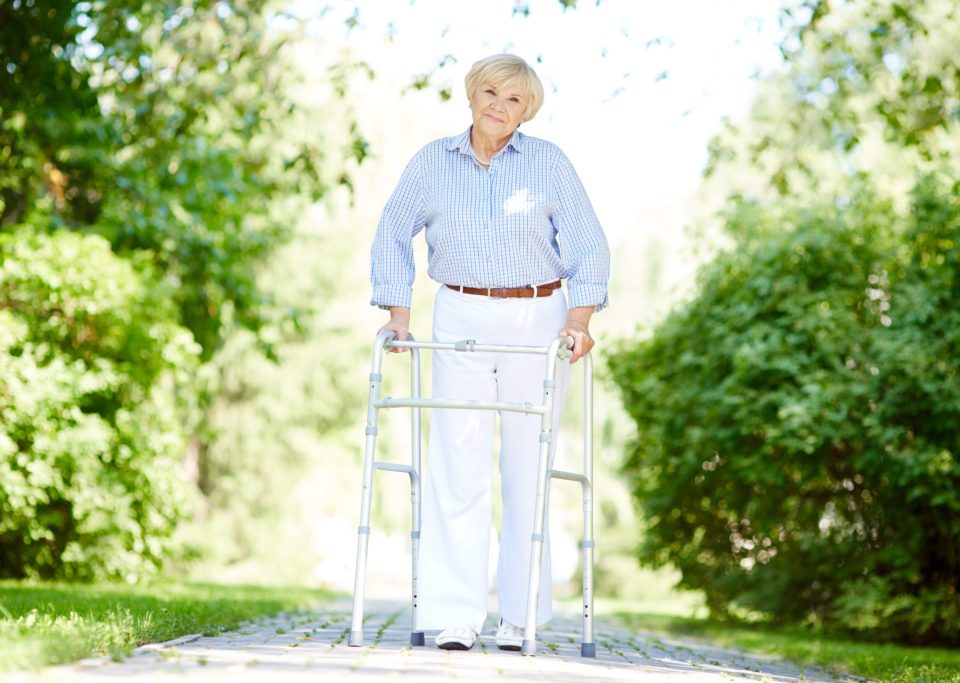The disease, so adept at taking away, has also allowed me to witness almost unbelievable kindness and bravery.
by former deputy premier – The Hon. John Watkins
Globally, an estimated 10 million people live with Parkinson’s disease (P.D.) The number is expected to double by 2050.
Approximately 200,000 of that total live in Australia. That translates into fifty Australians per day facing a distressing diagnosis with this bleak and debilitating condition.
World Parkinson’s Day is marked every year on 11 April. It is a day to think of those diagnosed and to remember the researchers, clinicians, doctors and nurses who bring compassionate, high-quality care and comfort to their patients with P.D.
I was first diagnosed with the condition when I was fifty-two, and have lived with this complex, progressive, neurological disorder for the past 16 years.
I am fortunate to have been diagnosed quickly, to have been treated with professional care and have had access to the most up to date medications, therapies and advice. And yet, still it has been a life defining struggle.
I know that there are diseases that cause more pain, some that are more destructive to the spirit or more confronting in the treatments available, and yet I can’t avoid the truth that this awful disease has unhinged me like nothing else. It’s the vagaries of the disease, how it changes and develops and in the fact that I will never be without it this side of the grave.
Parkinson’s Disease is an unyielding and difficult, incurable condition. It is often misdiagnosed, misdescribed or dismissed simplistically.
In my Parkinson’s experience the disorder has often caused the uncontrolled limb movement called dyskinesia which may also cause spasms and unrestrained waving of my arms especially when walking.
The severity of the dyskinesia comes and goes depending on the time of the day, whether I have slept well and medication levels. Thankfully. my form of Parkinson’s is not especially painful.
In recent months bradykinesia or slowness in movement has developed resulting in a progressive hesitation and freezing of gait and the weird inability to walk through a doorway without a lot of deliberate thought and effort.
Despite these mobility symptoms the non-movement symptoms have been far more characteristic of my P.D.
Depression and anxiety have for me, been the longest lasting and most determined of symptoms. In approximately 40% of PD cases mental health symptoms are often the first and longest lasting characteristic of those who develop P.D.
To suffer the despair of depression and limitless catastrophising of uncontrolled anxiety seems especially unfair.
But the most difficult characteristic of my PD continues to be the negative impact it has on my capacity to read and communicate.
Parkinson’s has impacted on my eye movement in such a way that I physically lose my place when reading a line on the page.
The only treatment available it seems is the exceptionally uncomfortable series of Botox injections I have every 12 weeks into my eye lids and muscles around the eyes.
Associated with this change in visual capacity, has been the recent disturbing development of hallucinations.
When out walking a man and his dog quickly change into a rubbish bin or as I wake from sleep a face looms up at me out of a haunting, terrible dream.
With the loss of reading skills comes a growing inability to plan or count or estimate numbers or the passage of time. This loss of thinking skills is matched by a corresponding drop in the capacity to express myself formally or in the most casual of conversations.
With that diminution in capacity comes a loss of confidence in anything requiring planning or executive thinking.
I used to be the transport and finance minister in NSW. Now I am uncertain about catching a train or using a supermarket checkout.
Inevitably, I suppose, I worry that this is the start of cognition problems that will carry me down some dementia pathway.
P.D. literally put paid to my work life with an attendant loss of relevance and deep wave of sadness.
When you include the overwhelming fatigue, trips and falls around the house and the swallowing difficulties that bring on paroxysms of coughing and panic, you realise that this condition is not a lot of fun.
I know so many others live their lives in more challenging circumstances, but still I can’t help feeling that Parkinson’s has unfairly robbed me of years of active and involved life.
In the face of Parkinson’s, I try to remain positive. I know there was no promise of fairness in life’s lottery, and I know that I have lived a remarkably fortunate life.
And certainly, I have met some wonderfully, happy people through P.D. who in the face of suffering are sanguine, tolerant and overwhelmingly positive.
I take part in a weekly specialist P.D. exercise group and it often strikes me that the sound you hear most coming from the group is laughter, encouragement and affection.
James Parkinson’s name was given to the disease in the early 19th century after he so cleverly recognised and described the symptoms of PD. I and all I know who experience those symptoms wish he had also found the cure.
But then if he had, I wouldn’t have met all those resilient and inspiring men and women who live such brave lies in the face of such overwhelming struggle.
Written by The Hon. John Watkins on World Parkinson’s Day 2025
Deputy Premier of NSW
2005-2008
John Watkins was NSW’s Labor deputy premier between 2005 and 2008, current chaor of Catholic Health Australia and former board member of Parkinson’s NSW.
————————————————————————————————————————-
Read more from former Parkinson’s NSW Deputy Chair The Hon. John Watkins
My journey with Parkinson’s continues, but it has not yet won out.





